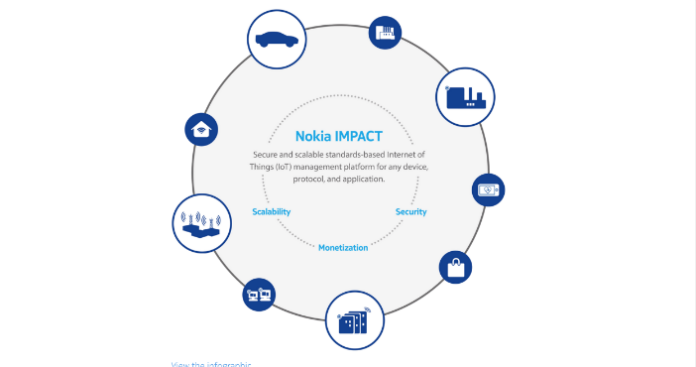While a vast majority of business leaders expect the industrial IoT to become a reality very soon, only a minority are ready for it.
The industrial Internet of Things (industrial IoT) or the fourth industrial revolution, defined by the World Economic Forum (WEF) as the integration of digital, physical and biological systems, might be underway but most industries have yet to feel its full impact, according to Derek O’Halloran, head of information technology and electronics industries, and member of the leadership team, at the WEF. ”The changes we are seeing so far are just the appetizer, the main course is yet to come,” he said, during a keynote at IOT Solutions World Congress in Barcelona on Tuesday.
The organization, which promotes a collaboration between the private and public sectors, believes the impact of the industrial IoT will be felt on four different levels. Firstly, the industrial IoT will bring efficiency gains and demand changes in operational models. It will also bring about new business models supporting new types of services. Industry structures will change as ecosystems become more prevalent. Finally, as autonomy is built-in in products and services, the very structure of the economy will feel the impact of the industrial IoT, said O’Halloran.
A survey among 800 technology executives conducted by the WEF shows that a majority of business leaders, 72 percent, expect the industrial IoT to be disruptive to industries, with 78 percent expecting this to happen within five years. Yet, as many as 88 percent said they are not ready for this transformation. A lack of technology knowledge and understanding among business leaders seems to be the core problem here, according to Derek O’Halloran.
He underlined the multitude of questions that the fourth industrial revolution raises among private organizations and governments. While businesses wonder how their context is changing, how they should deal with business models under pressure or how best to seize efficiency opportunities, governments ask themselves how they should manage this transition, how they can make their country attractive or whether anyone will follow the rules they devise.
O’Halloran promotes the use of testbeds to meet the challenges presented by the fourth industrial revolution. He also advocates four guiding principles: think systems instead of technologies, think of technologies as empowering instead of determining, build by design and not by default and create values as a feature and not as a bug.
Learning partnerships
Drawing on the learnings from Germany’s Industry 4.0 initiative, Matthias Machnig, state secretary of the federal ministry for economic affairs and energy of Germany, said during another keynote that there are indeed a lot of uncertainties around how digital transformation will impact industries. One way to address this challenge is to build learning partnerships just as Germany did in the case of the Industry 4.0 initiative, he said. Widely used as a PR gimmick three years ago, the Industry 4.0 initiative has indeed delivered some concrete value. ”Now, two years later, big companies like siemens and SMEs have presented smart solutions … There are now more than 300 test cases on how to use the IoT. This shows how important it is to build learning partnerships to work on this,” said Matthias Machnig.

